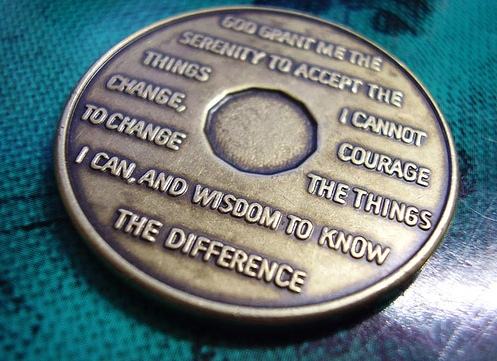An entirely different life

Alcoholics Anonymous has delivered support for many people.
Alcoholics Anonymous helps local man find sobriety, happiness
Tom has been sober for 27 years, but the road to recovery was far from easy.
“It’s still one day at a time,” he said. “The only person that can say you’re an alcoholic is the person themselves.”
Every day is a struggle.
“I will always been an alcoholic,” he said. “But I chose not to drink today. I take it one day at a time.”
According to the national library of medicine, alcoholism is a disease that affects nearly 17.6 million adults in the United States. The are four main features: Craving, loss of control, physical dependence and tolerance.
Tom began drinking late in life. He said when he was a senior in high school at the age of 18, he had his first drink.
“For the first 10 to 12 years, it was just on week-ends,” he said. “Alcoholism has no respect for person, it can affect anyone.”
Tom said alcoholism can reach anyone, the banker, the lawyer the normal everyday person.
“What do you think of when you hear ‘alcoholic’?” he asked. “Most people think of the bad guy in the gutter.”
He drank for many years and lost a lot throughout that time.
“I drank from 1948 until 1982. It made me feel different,” he said. “I spent all those years looking for that first feeling, but never found it.”
Alcohol first opened him up and allowed him to have fun, but his fun soon turned into loss.
“We (alcoholics) have lost a lot of things,” he said.
In his younger years, Tom worked as an executive and was happily married with two children.
“It took everything from me,” he said. “It took my wife and kids.”
Tom said alcohol is only a symptom of a bigger problem.
“I feel it is in my physical and psychological make-up,” he said.
He knew he was going down hill, but didn’t know how to pick himself up.
“I was on an elevator and instead of going up, I went down, and kept going down till I got to the basement,” he said.
He said it took him falling on his knees and asking God for help, to realize where he was. He had to hit rock bottom before he knew he had a problem.
“I was sleeping under a bridge in a cardboard box. Some one took me to an AA meeting.”
Tom feels he was called to Cullman to reach out to others in the same situation.
“I feel God called me to come to Cullman. I let God work through me so I can help others.”
He wants people to be clean for themselves, not for family or friends.
“The key to being successful is you got to want to be sober.”
He found help through the Alcoholics Anonymous group in Cullman.
“I still attend meetings three times a week,” he said. “I found a way of living there.”
Tom was comfortable at AA meetings because he could talk to others who had the same problems he did. They understand each other. They can openly discuss their problems without feeling like outcasts.
“It’s not hard to admit you’re an alcoholic,” he said. “But it’s hard to admit your life is unmanageable.”
The life of an addict is not a good one, he said.
“A lot follow this to insanity or even death,” he said. “It is an impending doom.”
AA follows the 12 step program. Tom said all the 12 steps need to be taken to get well.
“The key is to work the steps,” he said. “We are never cured of alcoholism, but you have to be willing to accept help.”
Tom is finally happy with his life.
“Going to the meetings has allowed me to go into a new life of freedom and happiness. It teaches us to be responsible people and have to make direct amends to people we harmed.”
Tom invites anyone who may have a problem to join AA.
“It doesn’t make a difference how people get there, just that they get there. We treat everyone alike and welcome you.”
Today, Tom is happily remarried and gives thanks to the Lord for his recovery.
“It’s an entirely different life,” he said. “It’s 100 percent better. I feel like today I am a member of the human race.”
source: Cullman Times

